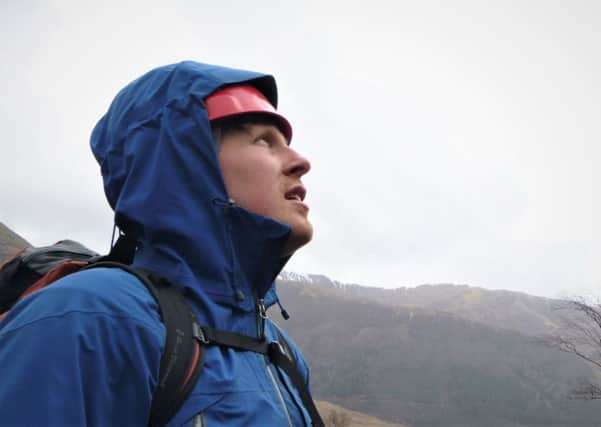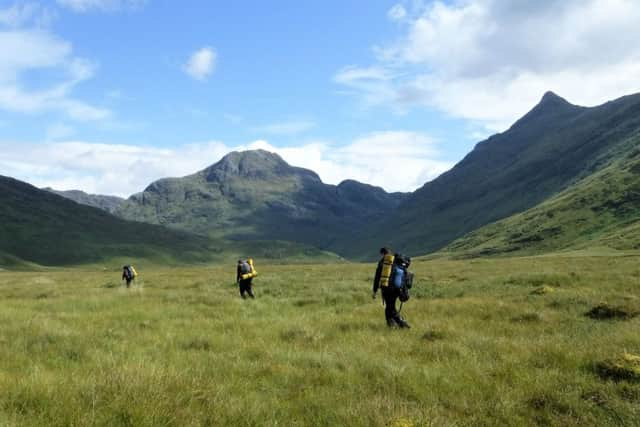Andy Hardie: Nature, wild spaces and physical activity benefit both body and mind


The zenith of this pressurisation is reached at a time in life when the transition from a child to an adult identity is under way. We all know this as adolescents. The adolescent mind is rapidly detaching from its parental base, preparing for independence, and this can be a stressful enough process. Add online bullying, strained relationships, academic expectation and it is little wonder young people are struggling.
There is an analogy that says: “Whilst an adult’s attention can be focused like a torch, a child’s attention is more like the ambient light from an oil lamp trying to illuminate everything at once.” Digital and social media just smashed that lamp on the ground and are watching the house burn down. Young people are overwhelmed.
Advertisement
Hide AdAdvertisement
Hide AdFor the first time in history children have a lower life expectancy than their parents. Studies show that in the UK there has been a sharp decline in childhood wellbeing, as well as increased cases of childhood obesity, depression and behavioural difficulties. Young people are spending less time in nature, less time enjoying activity outdoors, and less time in face-to-face relationships.


Nature, wild spaces, and physical activity have many proven physical and mental health benefits. But in today’s world, nature is all-but deleted from our urban ‘land’scapes. Young people today are more disconnected from nature than ever before despite the long-held knowledge being immersed in natural surroundings makes us feel better.
In 2015, 58,000 young people were prescribed anti-depressants. This is ever-increasing, along with an even greater number of parents that are struggling to access appropriate psychological help for their child. Anti-depressants and other prescription drugs used to treat depression, ADHD, mental health issues and anxiety can be initially helpful. But for many families, medication alone is not proving to be the answer.
Many parents have also tried traditional therapeutic support such as counselling, psychotherapy, CBT, and CAMHS for their child but have not been able to make the changes they were hoping for.
There is an alternative. One that is well established in America as an effective form of support for troubled young people. Something that is proving to have long-term sustainable benefit - Wilderness Therapy. A progressive, developmental and therapeutic programme, balancing activity and reflection, Wilderness Therapy can reach a young person in ways that are long-lasting and life changing.
Venture Mòr has pioneered this approach here in the United Kingdom. Through Wilderness Therapy participants develop awareness and insight that will help them when faced with difficult situations after returning home.
Getting outdoors into a wild and unfamiliar landscape is the first step; often an uncomfortable one. All electronic devices are checked in before departure to maximise the potential of ‘the embodied and relational experiences’ – removing distractions and focusing on relationships. Free from the daily pressure, stress and anxiety that is so familiar, the raging fire can be extinguished and the lamplight restored in a safe, contained, and supportive community. Perspective is everything and for a teenager looking at where they have just come from (their campsite, or problems back home) allows them to see and understand the topography and ecology differently.
The journey continues as a multi-week wilderness expedition on land and water, guided by experienced psychotherapists and skilled outdoor instructors. Every achievement – lighting a fire or putting up a tent – builds confidence in a participant’s own abilities. Every activity has a purpose: sharing in a reflective group; taking responsibility for cooking their own meal or navigating across a mountain plateau. It all develops focus and resilience but most importantly, self-awareness.
Advertisement
Hide AdAdvertisement
Hide AdA recent study by the University of Essex found that 83 per cent of young people who undertook a wilderness therapy programme went on to successfully gain employment or get back into education. In that, there is hope. And we hope to be able to support many more families through Wilderness Therapy.
Andy Hardie is head therapist at Venture Mòr – the social enterprise owned by parent charity Venture Trust – offering Wilderness Therapy programmes in the Scottish Highlands